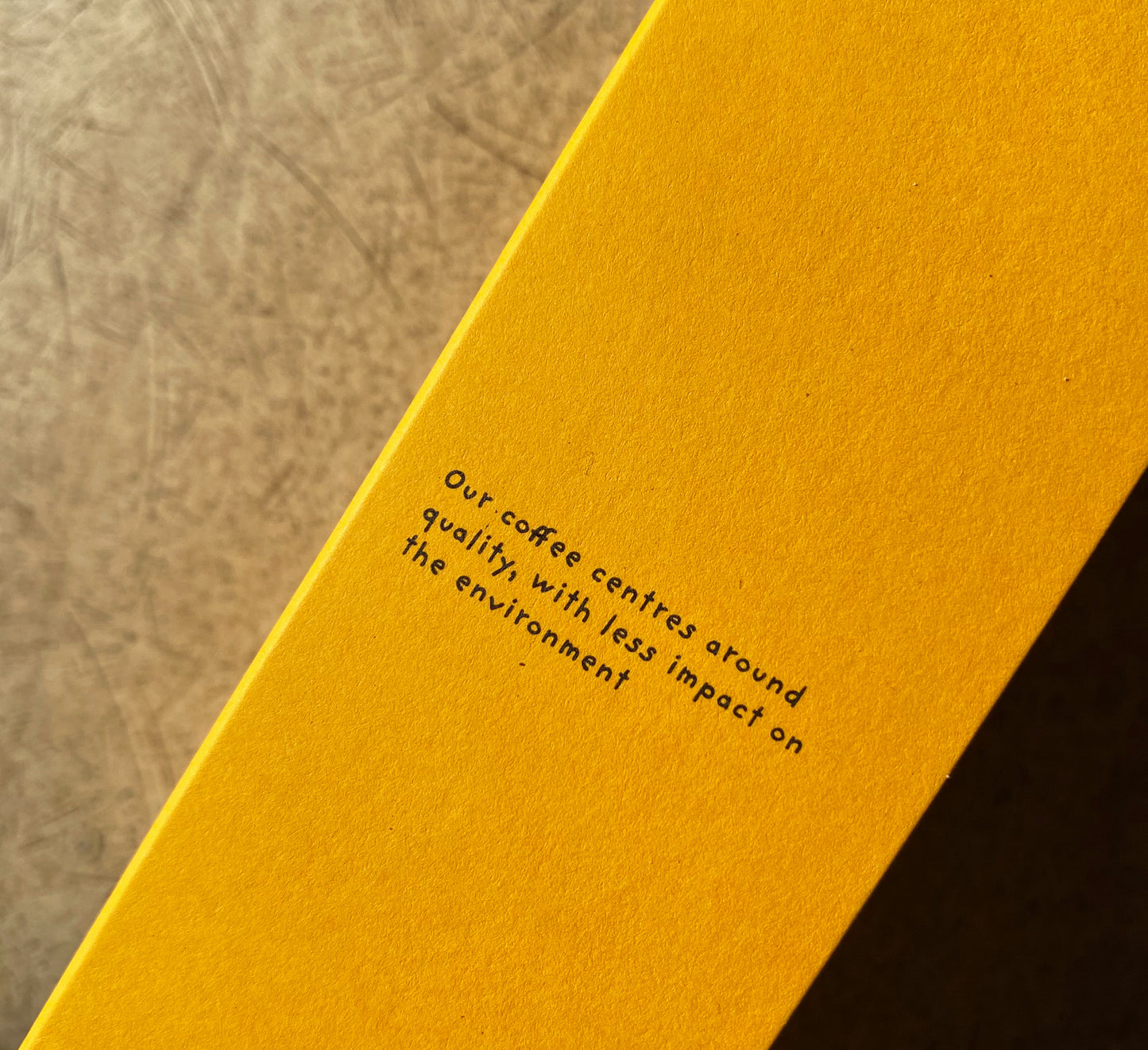Coley
Coley
Coley is a washed Ethiopian coffee from the Sidamo and Taferi Kela regions that harmoniously balances stone-fruit forward notes with a gratifying caramel aftertaste and a creamy body.
Source: ETHIOPIA
Flavours: Grape, Peach, Praline, Cacao, Blackberries, Caramel
Couldn't load pickup availability
Shipping
Shipping
- Hermes Standard UK 3-5 Day Service £3
- Free UK Shipping on orders over £25
Once your order has shipped you will receive an email with tracking details for your parcel.
If for any reason you do not receive your order within the allocated time, please use our contact form so that we can investigate the matter and do our very best to ensure you receive your item.
Subscribe & Save
Subscribe & Save
Signup for a Northern Cobbler subscription and make sure you're favourite brew is always on hand.
- Free UK Shipping
- Save 15% on All Recurring orders
- Pause, Skip or Cancel Anytime





Coley
Info
With Bette Buna, the traceability is exceptional. For every lot they specifically track and map the people involved at each stage of production; from the people who picked the cherries to those who processed and milled the coffee. This level of transparency is almost unheard of in Ethiopia. Not only do we know we’re getting the same coffees we tasted pre shipment, but we also know that the people who did the work are getting fair wages — everyone involved is adding value and being valued. This transparency work has the additional benefit of meaning Bette Buna is prepped for EUDR compliance.
This is a classic washed Ethiopian coffee: First depulped, then fermented for 24-36 hrs depending on the temperature. Fermentation happens in concrete basins topped with water. It’s a low oxygen but not completely anaerobic environment. Next it was washed and floaters/defects removed. Then 8-15 days on raised, covered drying beds followed by rest time in the warehouse to stabilize the coffee and reach the correct moisture level.
Ethiopian coffee
The exceptional quality of Ethiopian coffee is due to a combination of factors. The generic diversity of coffee varieties means that we find a diversity of flavour, even between (or within) farms with similar growing conditions and processing. In addition to varieties, processing methods also contribute to end quality. Most coffee is grown with no chemical fertilizer or pesticide use. The final key ingredients for excellent coffee in Ethiopia are the producing traditions that have created the generic diversity, processing infrastructure and great coffee we enjoy today.
Explore the collection....
-
Char Decaf
Vendor:NICARAGUA
Sweet Liquorice, Pear, Black Tea
Regular price From £13.95Regular price£9.00Sale price From £13.95Subscribe & Save












